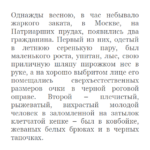Russian in Russian: How to say?
Saying Russian in Russian depends on the context, as there are multiple ways to do it.
If you want to say, for example, Russian language, you need to use the adjective ру́сский:
– ру́сский язы́к
[rús-keeî ya-zýk]
Russian language
Ру́сский in this case is masculine, as well as the noun which it describes (язы́к). Let look at how it will look in feminine and neuter genders:
– ру́сская жена́
[rús-ka-ya zhee-ná]
Russian wife
– ру́сское о́бщество
[rús-ka-ye óp-scheest-va]
Russian society
In plural, it will be:
– ру́сские лю́ди
[rús-kee-ye lyú-dee]
Russian people
Keep in mind, that Russian adjectives also change in cases. It means their endings can change depending on which role the noun, that the adjective describes, plays in the sentence. You can find more information about it here: declension of Russian adjectives.
Another sentence where you would want to say Russian would be, for example, I speak Russian.
In this case, you need to use the adverb по-ру́сски which literally means in Russian:
– Я говорю́ по-ру́сски.
[ya ga-va-ryú pa-rús-kee]
I speak Russian (lit.: I speak in Russian).
Here are more sentences of this type:
– Ты говори́шь по-ру́сски?
[ty ga-va-réesh’ pa-rús-kee]
Do you speak Russian?
– Здесь напи́сано по-ру́сски.
[zdyes’ na-pée-sa-na pa-rús-kee]
It’s written in Russian here.
The difference between the adjective (ру́сский) and and adverb (по-ру́сски) is that the adjective describes a noun or a pronoun, and the adverb describes a verb. Following this principal and the rules of Russian adjectival declension, you can be always sure that you are able to pick the right way to say Russian in Russian.
If you get confused in the grammatical explanations, we invite you to study Russian grammar online on another of our websites.
Listen to "Russian" in Russian
Examples of "Russian" in Russian
You might also like
- Russian cursive alphabet - Comparative table
- How to say YES in Russian
- Russian grammar











